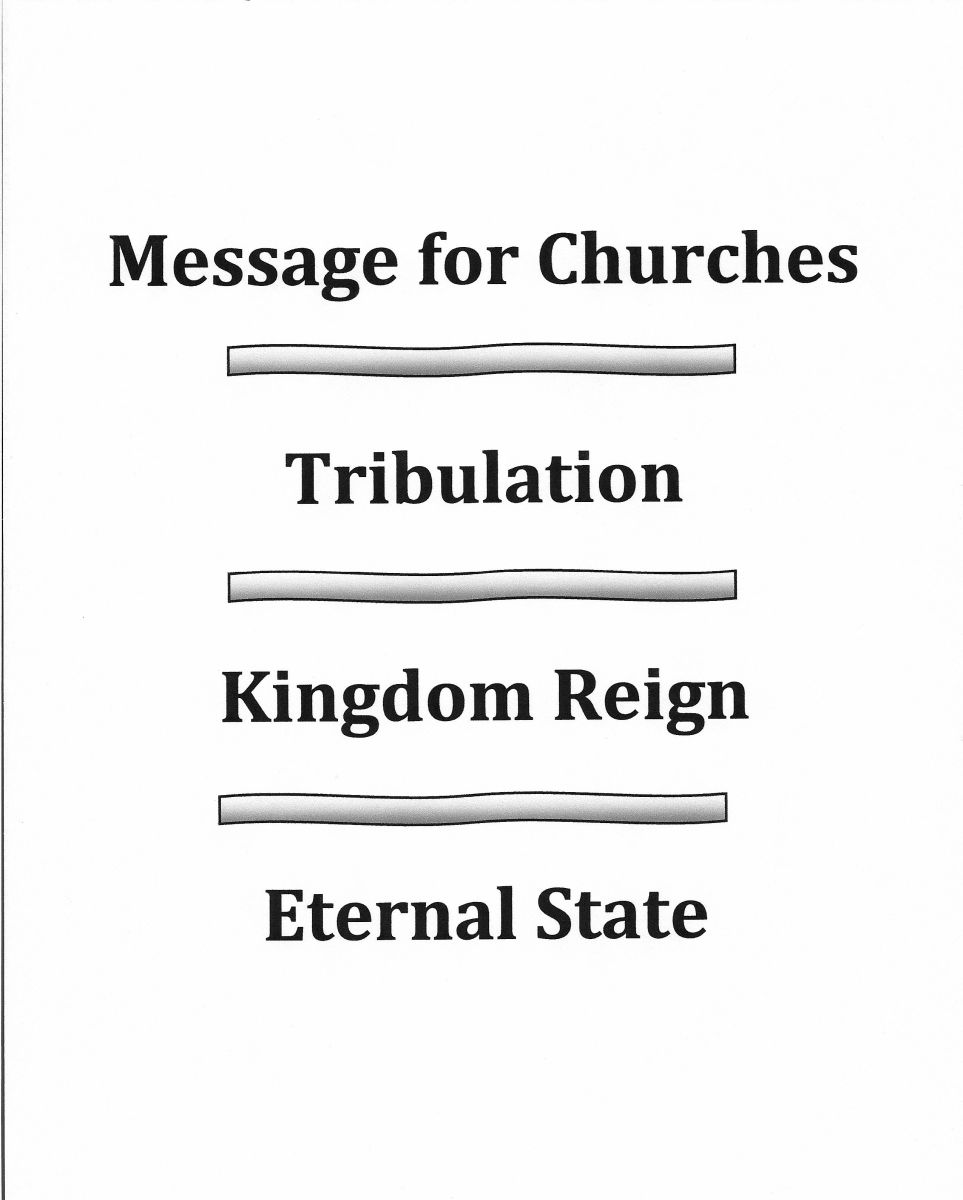The Betrothal of Jesus Christ
The Betrothal of
Jesus Christ
A Bible study on how a 1st century Jewish marriage tradition depicts the relationship between Jesus Christ and the Church
PART 1;
FIRST CENTURY JEWISH MARRIAGE PROCESS
INTRODUCTION
How would you react if told that Jesus was betrothed (engaged in today’s vocabulary)? How would you respond if told that Jesus’ proposal can be found recorded in the New Testament? Further, what if one could also identify who his betrothed is?
Before we proceed we must first define what is meant in this study when we use the word ‘betrothal. The term "betrothal" in Jewish law must not be understood in its modern sense; that is, the agreement of a man and a woman to marry, by which the parties are not, however, definitely bound, but which may be broken or dissolved without formal divorce. Betrothal or engagement such as this is not known either to the Bible or to the Talmud. [1]
By the first century, specifically during the life of Jesus, the manner that a couple became married had developed into a well regulated and orderly process that dates back into Israel’s early history. In fact some of these traditions can clearly be traced back to the time of Abraham. While many of these steps have over the years been eliminated or modified, in the first century they were well-defined and distinct.
As with other “customs” of the Jewish nation, if one examines the marriage process one can discern an outline of part of God’s plan of redemption. These customs, while using physical symbols and rituals, they present a spiritual message. For example the weekly Sabbath, while a physical day of rest it also depicts the spiritual rest we will enjoy when the Kingdom of God is fully established. The Holy days listed in the Bible (Passover, Days of Unleavened Bread, Pentecost, Day of Trumpets, Atonement and the Feast of Tabernacles) offer a broad overview of God’s master plan of reconciliation. The numerous sacrifices listed in the Old Testament provide us with an analogy of the perfect sacrifice of Jesus Christ for us. And if one examines the wedding process we find an outline of God’s formation of the church.
As we study the wedding process we must remember that these are physical acts being used to represent a spiritual act and while in the physical realm a marriage is between two individuals the spiritual marriage being portrayed is the union of Jesus and God’s chosen people (i.e. the church).
THE WEDDING PROCESS IN JESUS’ TIME
What were the steps that were taken that eventually culminated with the union of the groom and his bride? Essentially there were four distinct steps in the marriage process and they were;
1) The Bride selection (Shiddukhin)
2) The Bride price (Mohar)
3) The Betrothal (Eyrusin also Kiddushin)
4) The Wedding (Nissuin)
THE BRIDE SELECTION
In Jesus time the marriage process began with the prospective groom meeting with his intended’s father and announcing his desire to marry his daughter. [2] This was not the case originally; initially the selection of the bride was preformed by the father. We see this in the case of Abraham selecting a bride for his son Isaac (Gen. 24:1-4). Several Biblical passages refer to the negotiations requisite for the arranging of a marriage (Gen. 24; Song of Songs 8:8; Judges 14: 2-7), which were conducted by members of the two families involved, or their deputies, and required the consent of the prospective bride (if of age).
THE BRIDE PRICE
If the bride’s father approved, the two men would then begin to negotiate the price for the bride. This fee could be an amount of money the groom would pay to the bride’s father or a term of service he would provide (Gen. 24:53; 29:20, 27; I Sam. 28: 25). It is uncertain whether this bride price was paid to the father of the bride or was presented to the bride as a gift. Both cases are mentioned in the Bible; e.g., Eliezer, the servant of Abraham, brought costly gifts to Rebekah when he betrothed her for his master's son; while Jacob served Laban for fourteen years for his two daughters
This idea of paying a price for a bride may, to some in today’s society, seem as if the woman is being seen as property, but this is a misunderstanding of the tradition. This requirement of the 'bride price’ was not how much the bride could be sold for but how much her prospective husband valued/loved her.
Once the bride price had been paid the marriage covenant was established; it was definite and binding upon both groom and bride, who were considered as man and wife in all legal and religious aspects, except that of actual cohabitation. [3]
It was also customary for the bride and groom,to prepare for betrothal, to separately take a ritual immersion. The ritual immersion, mikveh, was prior to actually entering into the formal betrothal period, and was symbolic of spiritual cleansing.
THE BETROTHAL
The period is called, kiddushim, meaning "sanctification" or "set apart." This word really defines the purpose of the betrothal period; it is a time in which the couple is to prepare themselves to enter into the covenant of marriage. The Jewish understanding of betrothal has always been much stronger than our modern understanding of an engagement. The betrothal was so binding that the couple would need a religious divorce in order to annul the contract (Deut. 24:1-4). In two passages the betrothed woman is directly designated as "wife" (II Sam. 3:14, "my wife whom I have betrothed" and Deut. 22:24, where the betrothed is designated as "the wife of his neighbor").
To ratify this marriage covenant (or contract) the bridegroom would pour the bride a cup of wine. If she drinks from the cup he offers, she is consenting to marriage. But she doesn’t have to accept, she can refuse. She is at liberty to reject the bridegroom by rejecting the cup.No force could be used to persuade her to marry the prospective groom (Gen. 24:5-8, 57-58). According to the Mishnah, once a woman had refused the offer of marriage, she could not expect ANY benefit from the Groom, such as being able to keep part of the “bride-price”, or usage of any lands owned by the groom.
It was also customary to write a ‘marriage contract’; in it was detailed the bride price, the promises of the groom and the rights of the bride. Also included were that the Groom is to provide for the bride’s needs during the betrothal period. The Bride attests to her purity. In cases of “true love”, a “fallen woman” (one who had been with another man) could be brought into marriage IF the Groom’s father agreed to “waive” the requirement of virginity for his son. We see this in the Old Testament story of Rahab, a prostitute who married into the Tribes of Israel to become an ancestress of Jesus (Joshua 2:1: Matthew 1:5); and we also see it in the entire Book of Hosea.
In Jesus’ time after a couple was betrothed they were required to wait at least one year [4] before they could cohabitate and consummate their marriage. During this time the groom would return to his father’s house to prepare a place for he and his wife to live in; in Biblical times this was most often done not by building a new home, but by simply adding additional rooms to the family's existing home. The Rabbi's had determined that the place to which the bride was to be taken must be better than the place she had lived before. While separated the bride would gather her trousseau and also during this period of time the bride is being trained and prepared to take on the role of a wife.
Also during this betrothal period a few other things happened that were performed although no real stipulations were placed on these acts. These two acts were; the father giving to the bride a dowry and the groom sending love gifts to his betrothed.
Love gifts — In Talmudic days, as in modern times, gifts formed an important feature of betrothal and marriage customs. These were of several kinds. The gifts which the groom sent to his bride were called "siblonot" or "sablonot," a term which means "a gift or payment made as a sign or a mark by which to infer something; a token". [5] Its purpose was to be a reminder to his bride during their days of separation of his love for her that he was thinking of her and that he would return to receive her as his wife.
The dowry — were gifts from the bride’s father to help her enter into her new life. The Rabbis ordained that a man must give some of his property to his daughter when about to be married. The minimum amount was fifty zuzim (apx. ¼ a shekel) but every parent was obliged to give in proportion to his means. [6]
THE WEDDING
The actual time or day of the wedding was unknown by either the groom or the bride. It was not the groom's duty to determine when the place he was preparing for the bride was ready; his father would make that determination and give the go ahead to receive his bride. It was then that the groom would leave to go for his bride. The bride was not informed prior to the groom’s arrival that he was coming for her; she was to be waiting for his arrival which could come at any moment.
The taking of the bride usually occurred at night; since the time of his arrival was a surprise the bride and her bridal party were always to be ready. It was customary for one of the groom’s party to go ahead of the bridegroom, leading the way to the bride's house and shout "Behold, the bridegroom comes." This would be followed by the sounding of the shofar. At the sounding of the shofar the entire wedding processional would go through the streets of the city to the bride's house. The groom would then collect his bride and then they and the wedding party would return to the father’s house
The culmination of this joyful celebration was the marriage supper: it was much more than just a sit down dinner for all the guests. It included seven full days of food, music, dance and celebration (John 14:10-12). During the seven days of the wedding festivities, which were sometimes called "the seven days of the huppah," the bride remained hidden in the bridal chamber. [7] At the conclusion of these seven days the groom would bring his bride out of the bridal chamber, now with her veil removed, so that all could see who his bride was. After the festivities the husband was free to bring his bride to their new home to live together as husband and wife in the full covenant of marriage.
IN A NUTSHELL
Here are the steps of a Biblical marriage process:
1) The Bride Selection
2) The Bride Price
3) The Betrothal
a. The Marriage Contract
b. Dowry
c. Love Gifts
4) The Wedding Ceremony
PART 2;
THE BETROTHAL OF JESUS
Would it surprise one to be told that what is commonly called the Last Supper actually was a marriage proposal? Let us examine not just the Last Supper but the history of God’s relation with his chosen people in light of the above information. As we do also remember that the first century marriage process that we have examined is a symbol or more appropriately an analogy of God’s relationship with us.
THE SELECTION OF JESUS’ BRIDE
Recall that the whole marriage process was initiated by the father of the groom and it was God who selected the future bride of Jesus;
· According as he hath chosen us in him before the foundation of the world, that we should be holy and without blame before him in love: (Eph. 1:4)
· No man can come to me, except the Father which hath sent me draw him: and I will raise him up at the last day. (John 6:44)
· Father, I will that they also, whom thou hast given me, be with me where I am; that they may behold my glory, which thou hast given me: for thou lovedst me before the foundation of the world. (John 17:24)
· For whom he did foreknow, he also did predestinate to be conformed to the image of his Son, that he might be the firstborn among many brethren.
30 Moreover whom he did predestinate, them he also called: and whom he called, them he also justified: and whom he justified, them he also glorified. (Rom. 8:29-30)
· Behold, what manner of love the Father hath bestowed upon us, that we should be called the sons of God: therefore the world knoweth us not, because it knew him not. (1 John 3:1)
Recall also that the law allowed a father to use a personal agent (shadkhan; i.e. marriage broker or matchmaker) to handle finding a bride for his son (Gen. 24:1-4) and we see this aspect too in God’s selection process. Throughout history he has used two such shadkhans and they are; the prophets and the apostles;
· God, who at sundry times and in divers manners spake in time past unto the fathers by the prophets, (Hebrews 1:1)
· For I (Paul) am jealous over you with godly jealousy: for I have espoused you to one husband, that I may present you as a chaste virgin to Christ. (2 Cor 11:2)
In the same fashion as the Jewish bridegroom took the initiative in marriage by leaving his father's house and traveling to the home of the prospective bride, so too Jesus left His Father's house in heaven and traveled to earth, the home of His prospective bride, the church, over 1900 years ago.
THE BRIDE PRICE
As a price would be established for the bride based on the groom’s love for her and not on her financial worth so too Christ demonstrated his love for his potential bride and paid this price in full. That price was his own life; he shed his blood for his future bride:
· What? know ye not that your body is the temple of the Holy Ghost which is in you, which ye have of God, and ye are not your own? 20 For ye are bought with a price: therefore glorify God in your body, and in your spirit, which are God's…23 Ye are bought with a price; be not ye the servants of men. (1 Cor. 6:19-20; 7:23)
· Forasmuch as ye know that ye were not redeemed with corruptible things, as silver and gold, from your vain conversation received by tradition from your fathers; 19 But with the precious blood of Christ, as of a lamb without blemish and without spot: (1 Peter 1:18-19)
THE BETROTHAL
As we saw earlier this period is a somewhat lengthy period filled with many important elements. It also brings us to that point in time mentioned at the beginning of this section; Jesus’ ‘proposal’ during the Last Supper. Remember that after the bride price had been agreed upon the groom would make a proposal of marriage to his intended; she could freely decide to accept it or decline. She could not be compelled to accept his proposal. If she accepted his offer they sealed the agreement over a cup of wine.
The groom’s father would pour a cup of wine, and hand it to his son. Then the groom would hold up the glass and say to the bride, "This cup is a new covenant in my blood, which I offer to you." He would hand the cup to the bride. If the woman accepted the man's proposal, she would then take the cup and drink. If not, she would push the cup away.
· In like manner, also, the cup after the supping, saying, 'This cup [is] the new covenant in my blood, that for you is being poured forth (Luke 22:20 Young’s Literal Translation)
· After the same manner also he took the cup, when he had supped, saying, This cup is the new testament in my blood: this do ye, as oft as ye drink it, in remembrance of me. (1 Cor 11:25)
After drinking from the groom's cup, the bride would pass it back to the groom. He would then take the cup and drink from it. At this point in the ceremony, the couple would be considered "betrothed," which was as binding as marriage.
· And he went a little farther, and fell on his face, and prayed, saying, O my Father, if it be possible, let this cup pass from me: nevertheless not as I will, but as thou wilt. (Matt. 26:39)
The marriage contract – Whereas in the physical marriage process a contract [8] (Ketubah) was created in which the bride price, the Rights of the bride, and the promises of the groom were listed we too have such a spiritual contract listing the same specifications. This contract is the Bible.
In the contract the bride would attest to her purity and fitness to be a wife; however if the woman was “fallen” the father could waive this requirement. We see this in the Old Testament story of Rahab, a prostitute who married into the Tribes of Israel to become an ancestress of Jesus (Joshua 2:1; Matthew 1:5); and we also see it in the entire Book of Hosea, in which a prophet is commanded to marry a prostitute in order to demonstrate God’s love for fallen Israel. We also find this waiver in our wedding contract;
· Know ye not that the unrighteous shall not inherit the kingdom of God? Be not deceived: neither fornicators, nor idolaters, nor adulterers, nor effeminate, nor abusers of themselves with mankind, 10 Nor thieves, nor covetous, nor drunkards, nor revilers, nor extortioners, shall inherit the kingdom of God. 11 And such were some of you: but ye are washed, but ye are sanctified, but ye are justified in the name of the Lord Jesus, and by the Spirit of our God. (1 Cor 6:9-11)
After the creation of this contract the bride and groom would, separately, undergo a ritual immersion (mikvah) as a symbol of spiritual cleansing. We see this now in the act of baptism.
Jesus’ mattan –Just prior to leaving the groom would give his wife-to-be a Mattan (bridal gift); a pledge of his love for her. Its purpose was to be a reminder to his bride during their days of separation of his love for her that he was thinking of her and that he would return to receive her as his wife. Jesus’ mattan to us is the Holy Spirit which he first gave to the Apostles after his resurrection (John 20:22) and continues to give to his bride:
· But when the Comforter is come, whom I will send unto you from the Father, even the Spirit of truth, which proceedeth from the Father, he shall testify of me…7 …for if I go not away, the Comforter will not come unto you; but if I depart, I will send him unto you. (John 15:26; 16:7)
· …renewing of the Holy Ghost; 6 Which he shed on us abundantly through Jesus Christ our Saviour (Titus 3:5-6)
· Then Peter said unto them, Repent, and be baptized every one of you in the name of Jesus Christ for the remission of sins, and ye shall receive the gift of the Holy Ghost. 39 For the promise is unto you, and to your children, and to all that are afar off, even as many as the Lord our God shall call. (Acts 2:38-39)
· … And hereby we know that he abideth in us, by the Spirit which he hath given us…13 Hereby know we that we dwell in him, and he in us, because he hath given us of his Spirit. (1 John 3:24; 4:13)
· …ye were sealed with that Holy Spirit of promise, 14 Which is the earnest of our inheritance until the redemption of the purchased possession, unto the praise of his glory. (Eph 1:13-14)
Interestingly, based on the physical marriage analogy, we find the Holy Spirit actually fulfilling two aspects found during the betrothal period. It serves both as Jesus’ mattan to his future bride but also as obligated under the marriage contract which calls for the groom to provide for his bride’s needs during this time;
· Thou gavest also thy good spirit to instruct them (Nehemiah 9:20)
· But the fruit of the Spirit is love, joy, peace, longsuffering, gentleness, goodness, faith (Gal 5:22)
· Likewise the Spirit also helpeth our infirmities (Rom 8:26)
THE PERIOD OF SEPARATION
Just as the groom in the physical marriage analogy would then depart his betrothed and return to his father’s house to prepare a place for them to reside we find Jesus doing this too. In fact he makes reference to this very act during the Last Supper;
· In my Father's house are many mansions: if it were not so, I would have told you. I go to prepare a place for you. 3 And if I go and prepare a place for you, I will come again, and receive you unto myself; that where I am, there ye may be also. (John 14:2-3)
The Hebrew word referring to this period is eyrusin and it means Betrothal. The period is also called kiddushim which mean "sanctification" or "set apart." This word really defines the purpose of the betrothal period; it is a time in which the couple is to set aside to prepare themselves to enter into the covenant of marriage.
Just as the Jewish bride was declared to be sanctified or set apart exclusively for her groom once the marriage covenant was established, the Church has been declared to be sanctified or set apart exclusively for Christ;
· …as Christ also loved the church, and gave himself for it; 26 That he might sanctify and cleanse it with the washing of water by the word, 27 That he might present it to himself a glorious church, not having spot, or wrinkle, or any such thing; but that it should be holy and without blemish. (Eph. 5:25-27)
· Unto the church of God which is at Corinth, to them that are sanctified in Christ Jesus… 11 And such were some of you: but ye are washed, but ye are sanctified, but ye are justified in the name of the Lord Jesus, and by the Spirit of our God. (1Cor. 1:2; 6:11)
· By the which will we are sanctified through the offering of the body of Jesus Christ once for all… 12 Wherefore Jesus also, that he might sanctify the people with his own blood, suffered without the gate Heb. 10:10; 13:12).
Just as the Jewish bride during this time was expected to be preparing her wedding dress and learning how to be a wife we too are expected to be preparing ourselves to become part of the bride of Jesus by growing spiritually. And just as the Jewish bride would also be eagerly waiting for her groom’s return we too should be eagerly awaiting Jesus’ return.
As was mentioned above from this moment on the couple in the analogy and consequentially we Christians are considered married and the only way to nullify this relationship was through a divorce. According to the law this option was only available to the husband (Deut. 24:1-4) and this is true in the church’s betrothal to Jesus; we can not nullify our relationship only God can. However we are assured that he will never divorce us;
· And I will betroth thee unto me for ever; yea, I will betroth thee unto me in righteousness, and in judgment, and in lovingkindness, and in mercies. 20 I will even betroth thee unto me in faithfulness: and thou shalt know the LORD. (Hosea 2:19-20)
· For the LORD, the God of Israel, saith that he hateth putting away (Malachi 2:16)
THE WEDDING OF JESUS
Like the betrothed Jewish couple who did not know when exactly their wedding day would occur; that it was up to the groom’s father to allow it to finally happen, so too is the state of our betrothal. Jesus himself did not know when this blessed union would occur;
· But of that day and hour knoweth no man, no, not the angels of heaven, but my Father only. (Matt 24:36)
When finally the groom’s father approval had been given and the groom could claim his bride his departure from his father’s house was marked with a shout and the sounding of a ram’s horn. So too shall it be when Jesus returns to claim his bride:
· And he shall send his angels with a great sound of a trumpet, and they shall gather together his elect from the four winds, from one end of heaven to the other. (Matt 24:31)
· For the Lord himself shall descend from heaven with a shout, with the voice of the archangel, and with the trump of God (1 Thess 4:16)
Similar to the Jewish bride, while we do not know when our betrothed shall return for us, we must always be prepared to greet him; to have our wedding garments clean and ready. For soon the groom will come and we shall hear the heavenly shout and sounding of the heavenly trump;
7 Let us be glad and rejoice, and give honor to him: for the marriage of the Lamb is come, and his wife hath made herself ready. 8 And to her was granted that she should be arrayed in fine linen, clean and white: for the fine linen is the righteousness of saints. 9 And he saith unto me, Write, Blessed are they which are called unto the marriage supper of the Lamb.
(Rev 19:7-9)
[1] The Jewish Encyclopedia; Betrothal
[2] David R. Mace, Hebrew Marriage (New York: Philosophical Library, 1953), p.167
[3] The Jewish words that are rendered as betrothed and betrothal essentially mean “to contract an actual though incomplete marriage”
[4] ."Marriage," p. 372
[5] Jewish Encyclopedia; Betrothal
[6] Jewish Encyclopedia; Dowry
[7] "Huppah," The Universal Jewish Encyclopedia, ed. Isaac Landman (New York: Universal Jewish Encyclopedia Co., Inc.,1948), 5, 504
[8] also can be called a testament or a covenant







